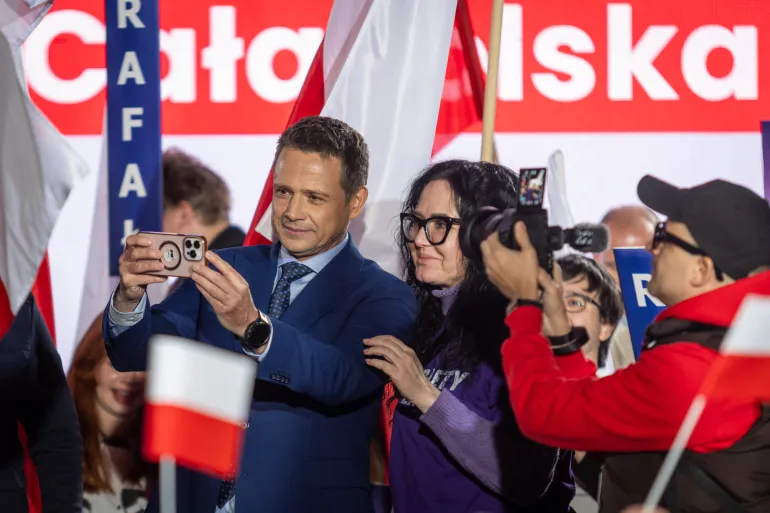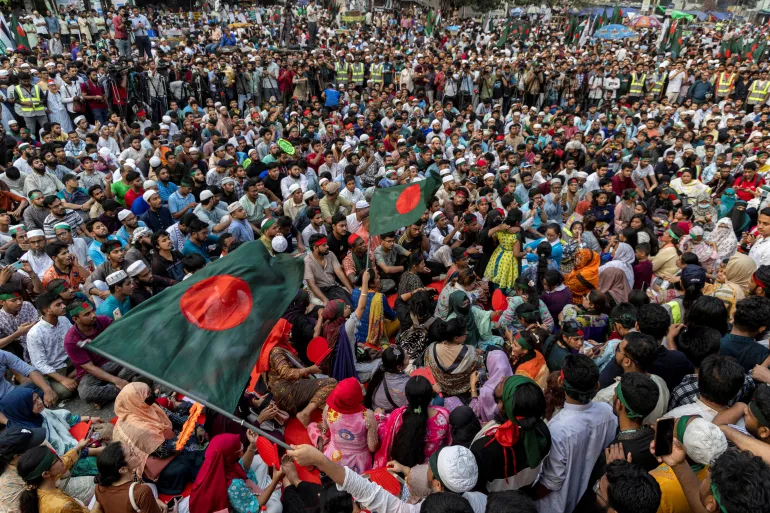Poland’s 2025 presidential election is headed for a runoff after Sunday’s vote failed to produce an outright winner, according to official results released Saturday, May 17. With none of the leading candidates securing more than 50 percent of the vote, a second round will now determine who takes the helm of the Eastern European nation amid growing economic pressures and geopolitical tensions.
Warsaw Mayor Rafal Trzaskowski, representing the centrist Civic Coalition, emerged as the frontrunner with 38.7 percent of the vote. He will face historian and conservative candidate Andrzej Ziemkiewicz, who secured 33.4 percent, in the decisive runoff scheduled for June 1. The tight race underscores a deeply polarized political landscape in Poland, with voters split between pro-European liberalism and nationalist conservatism.
Trzaskowski, who has served as mayor of the capital since 2018, campaigned on a platform emphasizing social unity, economic modernization, and stronger ties with the European Union. In his post-election speech, he pledged to “represent all Poles” and accused his opponents of “dividing the country for political gain.”
Ziemkiewicz, a controversial figure known for his staunch traditionalist views, has promised to protect what he describes as Poland’s “Christian roots” and national sovereignty. He has received backing from the ruling Law and Justice party (PiS), though he is not a formal member. Ziemkiewicz has made headlines with statements opposing LGBTQ+ rights and liberal judicial reforms, drawing criticism both domestically and from Brussels.
The turnout for the election was strong, with over 68 percent of registered voters casting ballots. Analysts attribute the high participation to growing concerns over inflation, immigration policy, and Poland’s strained relationship with the EU. Many voters view the election as a defining moment that could shift the nation’s direction on international alliances, civil liberties, and constitutional governance.
The third-place candidate, center-left economist Magdalena Różański, won 16.5 percent of the vote and has since endorsed Trzaskowski. Her support could prove pivotal in the runoff, especially among younger and urban voters.
International observers, including a delegation from the Organization for Security and Co-operation in Europe (OSCE), reported no major irregularities in the voting process. However, concerns remain about the state-controlled media’s influence on public opinion, particularly its favorable coverage of conservative candidates.
The runoff election is expected to be fiercely contested. Both camps are now racing to consolidate their support bases and court undecided voters. Trzaskowski has already announced campaign stops in traditionally conservative regions, while Ziemkiewicz plans to double down on his anti-immigration and nationalist rhetoric.
The outcome of the election will not only shape Poland’s domestic future but also its role within the European Union. With Russia’s war in Ukraine still ongoing and tensions rising in the EU over migration and rule-of-law disputes, Poland’s leadership in the coming years could significantly affect regional stability.
As the country braces for a decisive second round, all eyes remain on Warsaw to see whether Poland will continue along a path of conservative nationalism or pivot toward a more centrist and pro-European direction.
Source; Al Jazeera



